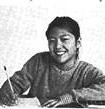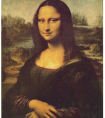I grew up in the 1950s with very practical parents. My mother washed aluminum foil(铝箔纸)after she cooked in it, and then she reused it. She was the earliest -八年级英语
题文
| I grew up in the 1950s with very practical parents. My mother washed aluminum foil(铝箔纸)after she cooked in it, and then she reused it. She was the earliest recycle(回收)queen before people had a name for it. My father was no different. He preferred getting old shoes fixed to -buying new ones. Their marriage was good and their dreams were focused(集中).Their best friends lived just a wave away. Though my parents have passed away, I can see them now - Dad in trousers, a T-shirt and a hat and Mom in a house dress, lawnmower(割草机)in one hand and dishtowel in the other. It was the time to fix things -a curtain rod(挂帘杆),the kitchen radio, the screen door, the oven door, and so on. They fixed all things we had. It was a way of life, and sometimes it made me crazy. All that re-fixing and renewing made me want to scream.1 wanted just once to be wasteful. Waste meant being rich. Throwing things away meant you knew there'd always be more. I often thought like that. But then my mother died, and on that clear summer night, in the warmth of the hospital room, I learned that sometimes there isn't any more. Sometimes, what we care about most gets all used up and goes away and it will never return. So, while we have it, it is the best that we love it, care for it, fix it when it's broken and cure it when it's sick. This is true for marriage, old cars, children with bad report cards, dogs with bad hips and aging parents and grandparents. We keep them because they are worth it and because we are worth it. 小题1:We can learn that when the writer was young, she_______.
|
答案
小题1:D 小题2:C 小题3:A |
试题分析:这篇短文主要介绍了作者的父母是实用的的父母,经常修理,回收利用旧东西,一开始作者不是很了解,她认为富有的人是有浪费的资本的。但是在母亲去世后,作者认识到要珍惜自己所拥有的人和物,爱自己所拥有的一切。 小题1:归纳理解题。根据短文第三段It was a way of life, and sometimes it made me crazy. All that re-fixing and renewing made me want to scream.描述,可知作者有时候对父母行为很不满,故选D。 小题2:归纳理解题。根据第四段描述可知在妈妈死后作者认识到我们最关心的东西在用光和消失后,它将永远不会返回,故选C, 小题3:归纳理解题。根据第四段So, while we have it, it is the best that we love it, care for it, fix it when it's broken and cure it when it's sick.及第五段可知,当我们拥有它时,它就是最好的,我们爱它,照顾它。当它坏了我们修理它,病了治愈它。婚姻,孩子及旧汽车等也是一样的,所以我们要爱我们所拥有的。故选A |
据专家权威分析,试题“I grew up in the 1950s with very practical parents. My moth..”主要考查你对 人物传记类阅读,故事类阅读 等考点的理解。关于这些考点的“档案”如下:
人物传记类阅读故事类阅读
考点名称:人物传记类阅读
- 人物传记类阅读:
本类型选材主要是名人轶事。
人物传记的叙述线索也常常以时间为序。内容一般不是一个人的生活流水账,而是选取主人公一些重要的人生阶段或生活片段来展开叙述。
阅读时要把握主人公在此阶段发生的事对他本身或他人有什么重要的意义和影响。
考点名称:故事类阅读
故事类阅读:
文章一般描述的是某一件具体事情的发生发展或结局,有人物、时间、地点和事件。
命题往往从故事的情节、人物或事件的之间的关系、作者的态度及意图、故事前因和后果的推测等方面着手,考查学生对细节的辨认能力以及推理判断能力。
阅读这类材料时,同学们一定要根据主要情节掌握文章主旨大意,同时抓住每一个细节,设身处地根据文章内容揣摩作者的态度和意图,根据情节展开想象,即使是碰到深层理解题也可迎刃而解。- 故事类阅读注意:
初中生接触到的阅读材料大都是故事类。
阅读故事类的材料,应该抓住人物线索、地点线索、时间线索和情节发展线索。
特别注意的是,以上线索往往是并存的。因为情节的发展总是涉及到人物的变化、时间的推移、场景的变换等。
而阅读材料后的阅读理解往往会围绕这些内容设计一些事实类的理解题。
凡事实类的理解题都可以从阅读材料的表层文字中找到答案。
在阅读故事类短文时,应理解文章的深层含义,也就是它的主题。在此需要注意的是,现在的阅读理解题在测试事实类的理解题的同时,往往有一道推理类理解测试题.
- 最新内容
- 相关内容
- 网友推荐
- 图文推荐
上一篇:"Tammy! Come here, please! Mother needs your help in the kitchen." Her father called out to her. Tammy was in her room, getting ready to do her homework. "-八年级英语
下一篇:It was the Greek shopkeeper who taught me about the power of being kind. In 2008, I left Spain to study alone in London. My parents had to bring up my three yo-九年级英语
零零教育社区:论坛热帖子
| [家长教育] 孩子为什么会和父母感情疏离? (2019-07-14) |
| [教师分享] 给远方姐姐的一封信 (2018-11-07) |
| [教师分享] 伸缩门 (2018-11-07) |
| [教师分享] 回家乡 (2018-11-07) |
| [教师分享] 是风味也是人间 (2018-11-07) |
| [教师分享] 一句格言的启示 (2018-11-07) |
| [教师分享] 无规矩不成方圆 (2018-11-07) |
| [教师分享] 第十届全国教育名家论坛有感(二) (2018-11-07) |
| [教师分享] 贪玩的小狗 (2018-11-07) |
| [教师分享] 未命名文章 (2018-11-07) |






